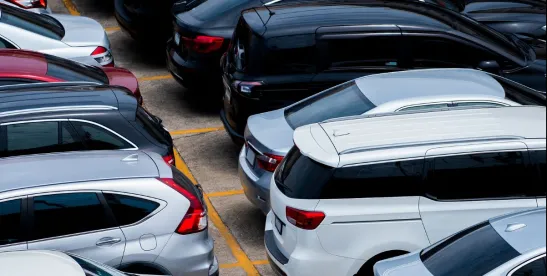Key Developments
- An article by Foley & Lardner Partner Vanessa Miller that provides a guide to force majeure provisions was published in mdm Distribution Intelligence.
- To address potential risks to national security, the U.S. Commerce Department issued a proposed rule that could prohibit imports from the People’s Republic of China and the Russian Federation of certain hardware used in vehicle connectivity systems (VCS). The proposal would also ban certain software used in VCS or automated driving systems when “designed, developed, manufactured, or supplied by persons owned by, controlled by, or subject to the jurisdiction or direction of the PRC or Russia.” According to a Commerce Department official quoted in Reuters, “we anticipate at this point that any vehicle that is manufactured in China and sold in the U.S. would fall within the prohibitions.” Canada is reported to be considering similar measures in regards to restricting certain connected-vehicle hardware and software.
- U.S. new light-vehicle sales in September are projected to fall 1.8% compared to September 2023 on a selling-day adjusted basis, according to a joint forecast from J.D. Power and GlobalData.
- U.S. third-quarter new vehicle sales are projected to be relatively flat year-over-year for a number of automakers.
- GM reported its third quarter 2024 sales fell 2.2% year-over-year, due to challenges that included lower pickup truck volumes and weakness in fleet sales.
- The National Association of Manufacturers estimates the strike by U.S. East Coast and Gulf Coast dockworkers that began October 1could “jeopardize $2.1 billion in trade daily, and the total economic damage could reduce GDP by as much as $5 billion per day.” The contract between the ports and approximately 45,000 members of the International Longshoremen’s Association expired September 30.
- Automakers that include Stellantis, Volkswagen, BMW, Mercedes-Benz and Volvo have recently lowered earnings guidances due to market challenges that include sluggish sales in Europe and increased competition from Chinese automakers.
- According to data published September 19 by the European Automobile Manufacturers’ Association, battery electric vehicle registrations in the EU dropped 43.9% year-over-year in August, and total BEV market share declined to 14.4% from 21% a year ago. The analysis stated the decline in August was “driven by the spectacular drop in the two biggest markets for BEV cars: Germany (-68.8%) and France (-33.1%).” Just over 900,000 new BEVs were registered in the EU in the first eight months of 2024, for 12.6% of the market.
- The European Union plans to vote in the coming days to establish definitive tariffs on imports of certain EVs made in China. The EU implemented provisional tariffs on Chinese-made EVs in July.
- A study featured in Wards Auto claims that up to 75% of lithium-ion battery supply chains worldwide may present exposure to illegal child labor and forced labor.
- Monroe Capital committed to raising up to $1 billion through a new “Drive Forward” fund advised by supplier association MEMA and the Alliance for Automotive Innovation to help small- and medium-sized auto suppliers “refinance, grow, and diversify their businesses.” The fund will raise money from institutional investors and receive additional funding from U.S. Small Business Administration loans. The announcement was part of a White House initiative that includes the establishment of a Michigan Workforce Hub to support automakers and autoworkers.
- The National Highway Traffic Safety Administration announced GM’s Cruise self-driving unit will pay a $1.5 million penalty for failing to fully disclose details of an October 2023 crash in San Francisco that involved a pedestrian. Cruise will also submit a corrective action plan to NHTSA and comply with enhanced reporting requirements for at least two years. Cruise plans to resume robotaxi testing in California this fall in limited locations with drivers behind the wheel.
- California enacted a law that will require automakers selling internet-connected vehicles to establish certain safeguards to protect domestic abuse survivors from features such as location tracking.
OEMs/Suppliers
- Bloombergreports investors, dealers and unions have expressed concerns that ongoing cost-cutting initiatives at Stellantis have delayed crucial new models and negatively impacted the automaker’s business.
- Automakers’ recent labor updates include:
- UAW President Shawn Fain warned of a potential strike against Stellantis over plans to eliminate seasonal supplemental employees and indefinitely lay off union-represented workers “across its footprint.” The UAW also alleged that Stellantis failed to honor a commitment in the parties’ 2023 labor contract by delaying plans to reopen its Belvidere Assembly plant in Illinois. Separately, Italian unions are planning a one-day strike on October 18 to protest Stellantis’ declining production in the country.
- GM will temporarily lay off nearly 1,700 workers at its Fairfax Assembly plant in Kansas while retooling to begin production in mid-2025 of the Chevrolet Bolt EV and gasoline-powered Cadillac XT4 crossover. Production of the Chevrolet Malibu, the brand’s last sedan, will end at Fairfax this November. In addition, GM could lay off over 250 part-time temporary workers at its Fort Wayne Assembly plant in Indiana and Bowling Green Assembly plant in Kentucky unless local agreements are reached with the UAW over the employment status of the workers.
- Ford and UAW Local 600 reached a tentative agreement to cover approximately 500 employees at the Dearborn Tool and Die plant.
- GM and Unifor Local 88 ratified a new agreement to cover 1,300 workers at the automaker’s CAMI assembly plant in Ontario.
- Volkswagen expects significant concessions from its workforce during negotiations over new wage deals. Last month the automaker announced it was considering plant closures in Germany for the first time in the company’s history amid reduced vehicle sales and increased competition from Chinese automakers.
- Continental is evaluating a strategic plan to separate its automotive business into an independent entity.
- Laepple Automotive will invest $78 million to establish its U.S. headquarters and a stamping plant at the site of a former Stellantis facility in Detroit. The investment is supported by an incentives package, according to an announcement from the Michigan Strategic Fund.
Electric Vehicles and Low Emissions Technology
- The Department of Energy on September 20 announced over $3 billion in funding for 25 projects across 14 states to increase domestic production of advanced batteries and battery materials. The awards include $355 million for four projects across Michigan that will be established by Revex Technologies, Mitra Future Technologies, NanoGraf and Cabot Corporation.
- The DOE launched a new Battery Workforce Challenge program that will establish regional training hubs for “battery and EV technicians, electricians, skilled workers, and engineers.” The Michigan Battery Workforce Pilot will be the first hub in the program.
- Swedish battery maker Northvolt revised its scope of operations, amid market challenges that include lower than anticipated EV demand, and competition from Chinese companies that sell batteries at lower prices.
- Lithium prices have fallen by over 80% in the past year, and in response at least two companies have reduced mining production, according to reports in The Wall Street Journal and Reuters.
- Nikkei Asia reports Chinese companies accounted for over 80% of global shipments of key lithium-ion battery components in 2023.
- Stellantis will recall 194,000 plug-in hybrid electric Jeep SUVs from model years 2022 through 2024 to address the risk of fire. Thirteen fires involving the vehicles have been reported.
- The U.S. Treasury Department announced proposed rules to detail which EV charging stations and other clean fuel infrastructure would be eligible for the Section 30C Alternative Fuel Vehicle Refueling Property Credit.
- EVs that require fewer parts to assemble could provide new opportunities for automakers to deploy robotic technology. According to the head of robotics research at the Toyota Research Institute, the next wave of automation is the development of neural networks for artificial intelligence-powered industrial robots to learn complex, multi-step tasks.
- Rivian Automotive launched a pre-owned sales program for its electric R1T pickup and R1S crossover vehicles.
- Oak Park, Michigan-based Bollinger Motors started production of its Class 4 electric chassis cab commercial trucks.
- Lucid Motors plans to eventually employ up to 250 workers at a recently established technology hub in Southfield, Michigan, according to a report in The Detroit News.
- Hyzon began production of its 200-kilowatt Class 8 hydrogen fuel cell electric truck. The vehicle will initially be produced at a Fontaine Modification facility in Charlotte, N.C.
- Bloomberg NEF estimates electric and fuel-cell vehicles represented just under 2% of global commercial truck sales in the second quarter of 2024, and market penetration is approaching 6% in China. The analysis predicts interest in commercial electric trucks will accelerate ahead of tightening fuel efficiency and emissions regulations in California and Europe.
- On September 18, GM EV owners that purchased adapters could access Tesla’s Supercharger network in the U.S.
- Ford will cover the cost of a home charging station and its installation beginning October 1 through the end of the year for customers who buy or lease one of the automaker’s EVs.
Automated, Autonomous or Connected Vehicles Technologies
- Research from the Insurance Institute for Highway Safety found partial automation systems in vehicles contributed to higher levels of driver distraction.
- Ann Arbor, Michigan-based autonomous vehicle company May Mobility Inc. plans to add 100 workers at its headquarters by October 2026, down from a previous target of 300 new jobs.
Market Trends and Regulatory
- The Treasury Department’s delay in releasing the rules for a new 45Z clean fuel production tax credit has impeded certain industry investments, according to analysis in Bloomberg.
- The U.S. House Committee on Energy and Commerce advanced a bill (H.R. 8449) that would require automakers to provide AM radio in all new vehicles. Certain automakers hope to eliminate the frequency from EVs due to the potential for signal interference with battery motors.
- The U.S. House of Representatives passed a disapproval resolution under the Congressional Review Act to overturn the Environmental Protection Agency’s emissions standards that begin for model year 2027 cars and light trucks. While the measure is currently unlikely to advance in the Democrat-controlled Senate, it could indicate a preview of Republicans’ priorities should they retain control of the House and win a majority in the Senate following the 2024 election.
- A bipartisan group of U.S. lawmakers urged Canada and Mexico to adopt stronger measures to block imports of goods made with forced labor in China’s Xinjiang region.






 />i
/>i

